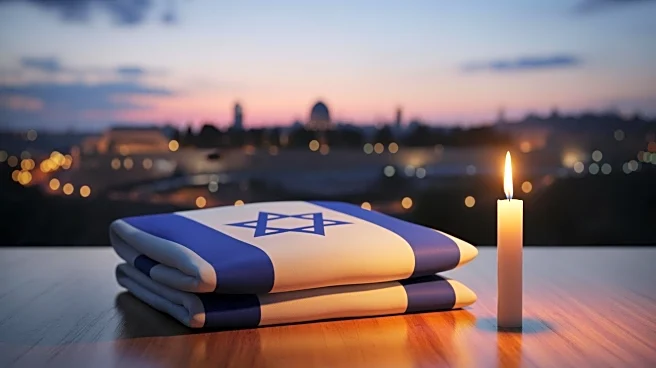What's Happening?
Prime Minister Benjamin Netanyahu has confirmed that Israel expects to receive the remains of Hadar Goldin, an Israeli soldier killed in 2014, whose body has been held in Gaza. The return is part of a ceasefire
agreement between Israel and Hamas, aimed at ending hostilities and returning hostages' remains. Goldin was killed during the 2014 war between Israel and Hamas, and his family has been awaiting his return for years. The transfer of his remains is expected to occur soon, marking a significant step in the ongoing truce.
Why It's Important?
The return of Hadar Goldin's body is a pivotal moment in the ceasefire agreement, highlighting the humanitarian aspect of conflict resolution. It provides closure to Goldin's family, who have endured years of uncertainty and grief. This event underscores the importance of international mediation in resolving long-standing conflicts and may influence future negotiations between Israel and Hamas. The exchange of hostages' remains could foster trust and pave the way for further diplomatic engagements, potentially easing tensions in the region.
What's Next?
Following the return of Goldin's body, Israel is expected to continue efforts to retrieve the remains of other hostages held in Gaza. The ceasefire agreement stipulates the return of all hostages' remains, which could lead to further exchanges between the parties involved. Israel may also engage in negotiations to secure the release of additional hostages or bodies, while Hamas might seek concessions in return. The international community, including mediators, will likely monitor these developments closely to ensure compliance with the truce terms.
Beyond the Headlines
The return of Goldin's body highlights the ethical and religious values associated with military service in Israel, where soldiers are promised a dignified burial. This event may prompt discussions on the treatment of soldiers' remains in conflict zones and the responsibilities of governments to their military personnel. Additionally, it raises questions about the humanitarian impact of prolonged conflicts and the role of international organizations like the Red Cross in facilitating resolutions.











